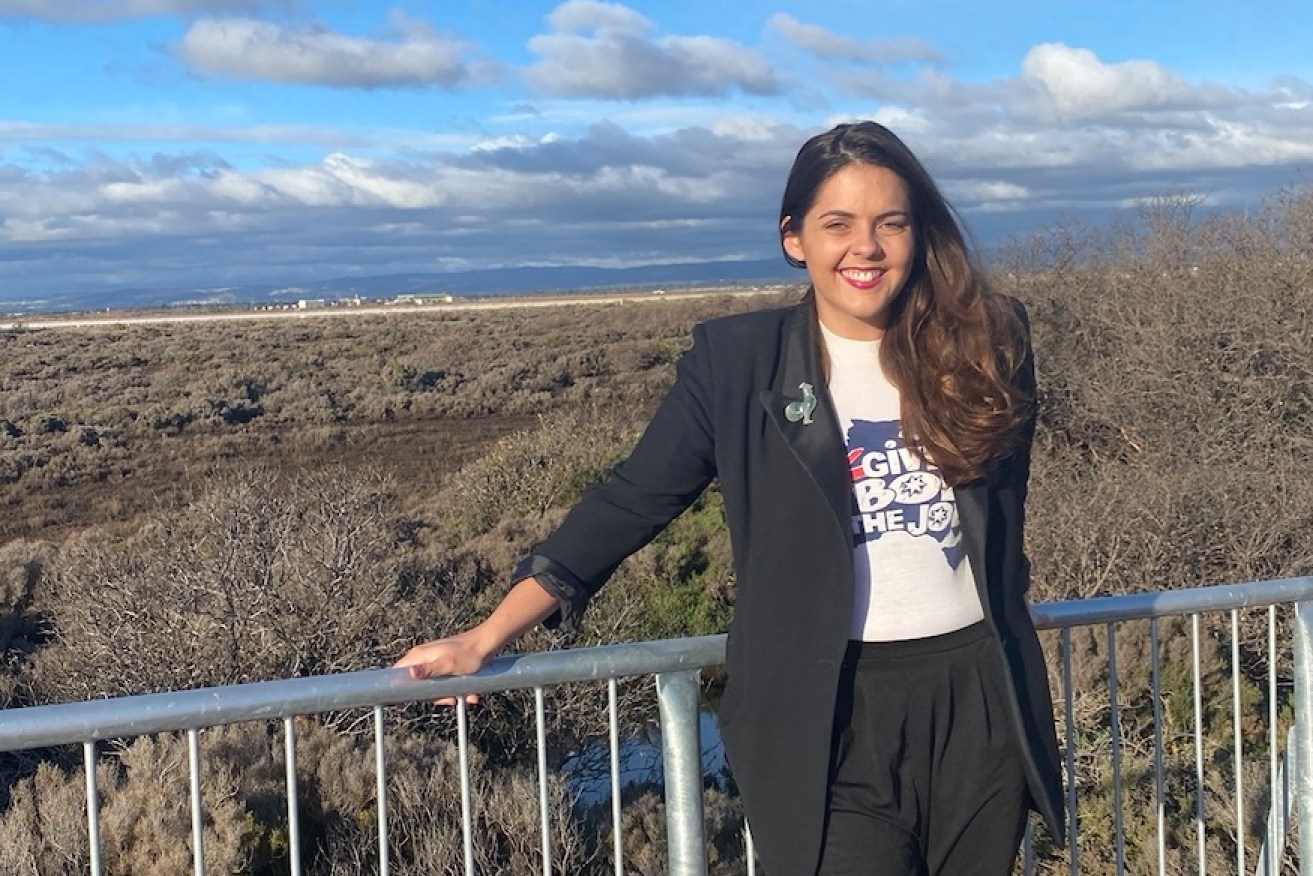Labor rejects SA hopeful’s appeal against “oppressive and anti-democratic” ballot
EXCLUSIVE | A preselection hopeful for Labor’s safest federal SA seat says she is “assessing all options” after a national tribunal process rejected her appeal against the way the process is being conducted.

Spence ALP preselection candidate Alice Dawkins. Photo: Supplied
Policy strategist Alice Dawkins had stunned the ALP with a shock legal letter threatening Supreme Court action over alleged “serious issues” with the candidate selection process in the northern seat of Spence, after incumbent Nick Champion opted to shift to state parliament at next year’s election.
Slamming the preselection process as “oppressive and anti-democratic”, Dawkins claimed the party’s national rules on selecting women candidates in winnable seats was being circumvented by the state branch, demanding Labor “open or reopen nominations for all held federal seats” to rectify the breach.
The ‘Labor Unity’ Right faction that controls the Spence branch had already endorsed Transport Workers Union official Matt Burnell for the plum preselection, but Dawkins lodged an appeal against the process to the party’s state executive, which was recently heard by a tribunal chaired by former Queensland MP and Attorney-General Linda Lavarch.
Lavarch yesterday handed her decision to the ALP national executive – rejecting Dawkins’ appeal.
Dawkins – the daughter of former federal Treasurer John Dawkins – told InDaily she was now considering all options, including the Supreme Court challenge, but did not rule out withdrawing from the contest altogether, saying she had “no comment on that right now”.
“I am thoroughly considering what other steps I can take to work for the application of the national rule in South Australia to ensure greater female representation in the federal parliament,” she said.
“Affirmative action has a long history and is currently being enthusiastically celebrated as a hallmark of Labor’s success for women in parliament – it must be defended.”
In a statement, she said she was “surprised that the appeal I took in favour of upholding the national rule on affirmative action has been dismissed, in favour of the continued operation of the defective state rule, which is demonstrably less ambitious about increasing female representation in the federal parliament from South Australia, and has permitted serial failures at meeting gender parity in public office”.
She insisted the national rule “requires that for the ALP’s five ‘held’ [lower house] seats and two Senate seats, women must be preselected in at least 3 of them”.
“At the moment there are only two [and] that was also the case leading into the 2019 election,” she said.
“The application of the state rule results in less than 30 per cent women in ‘held’ or ‘safe’ seats in South Australia [but] curiously, it requires a minimum 50 per cent of men to hold positions and arranges the AA [Affirmative Action] calculation in such a way that candidates with minimal chance of success at the election count towards the quota – offending the spirit of the national rule, and the much-celebrated activism of generations of Labor women.”
Dawkins said if the National Executive backed Lavarch’s determination, “then the state branch is free to continue thumbing its nose at the national requirement [that] 40 per cent of safe seats should be held by women, which will go up to 45 per cent in 2022, and then 50 per cent in 2025”.
In a further statement, she said the “impact of Ms Lavarch’s determination is that the national affirmative action rule, a much-celebrated reform of this party, is whittled down into an opt-in scheme applied selectively and at the whim of state branches”.
“National Executive support for this determination would make a travesty of this fundamental principle of the party,” she said.
Labor insiders believe if Dawkins’ appeal was successful all current preselections – from federal leader Anthony Albanese down – would have to be scrapped and redone.
Dawkins, however, said the SA Branch had relied in its submission “on a sensationalised ‘slippery slope’ argument and Ms Lavarch has favoured this argument”.
“The inference made by the SA Branch is that a pure interpretation of [the] National Rule will result in havoc for state branches across the nation.
“Applying the clear meaning [of the rule] may cause momentary administrative headache for those branches with deficient AA rules… importantly however, it will ensure consistent and even coverage of AA to all candidates in preselections.
“Endorsement of Ms Lavarch’s determination would be a crushing blow for the women and men who fought so hard for progress on affirmative action… any delinquent branch [would be] henceforth permitted to shirk and rort AA without fear of national intervention.
“This is a disastrously backwards step for our party, which needs to be demonstrating a robust approach to AA at every preselection decision point.”
Burnell told InDaily that “due to the preselection process still in progress, I am unable to make any comments to media at this time”.
ALP state secretary Reggie Martin said the matter was now before national executive and he “can’t comment until it’s finalised”.
It’s understood the state party has requested the national executive hold an urgent meeting to respond to the tribunal’s determination.
Ballots for the preselection have already been distributed to eligible party members and are due back by close of business on Tuesday.




